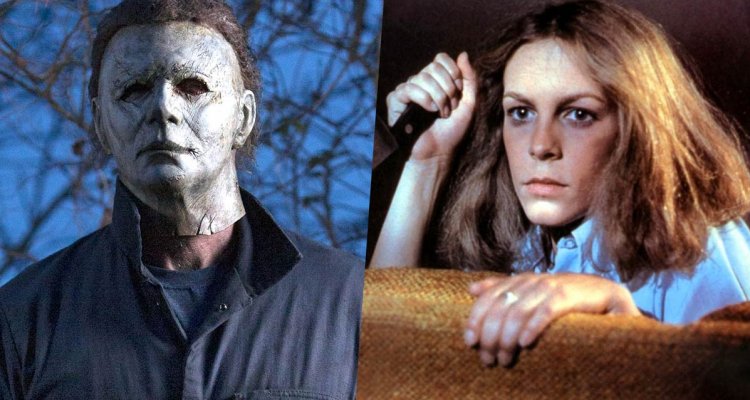This weekend sees the release of the new “Halloween,” David Gordon Green’s sequel/soft-reboot of John Carpenter’s horror classic that sees Jamie Lee Curtis and Nick Castle (with some non-masked assistance from James Jude Courtney) reprise their roles as Laurie Strode and Michael Myers, respectively.
40 years ago, John Carpenter and Debra Hill created one of the most terrifying films of all-time, a horror icon in Myers, and served as the blueprint for the avalanche of slasher films that would follow in its wake in the 80’s (Freddy Krueger and especially Jason Voorhees would not exist without Michael). Naturally – with the low-cost nature of horror films on a certain scale – “Halloween” not only spawned imitators, but created a franchise all onto its own. And with that comes… inconsistencies.
Hey, no film series goes through 11 films in 40 years and have them all be winners. That’s just a statement of fact. But, the series does have worthwhile entries outside of the one that started it all. So with that, we took a trip down memory lane to examine Michael’s legacy, and determine the true, definitive ranking of the “Halloween” series. There will be contention, but our research led us to these conclusions.
11. “Halloween (2007)”
The only good thing that can be said about Rob Zombie’s abominable re-telling of Carpenter’s classic is that it is unmistakingly his vision. That being said, if your tolerance for redneck hillbillies, overly-excessive obscenities, and gratuitous brutality isn’t high, you likely recoiled and immediately rejected this vision from frame one when Michael Myers’ parents screamed at each other at the breakfast table underscored by KISS’ “God of Thunder.” Furthermore, the first hour of Zombie’s feature feels the need to psychoanalyze Michael and his penchant for violence, whereas Carpenter portrayed that succinctly in roughly five minutes. Then the second hour is just a frustrating retread that is sorely lacking the dread of an unknown entity encroaching the suburbs for seemingly no reason but to kill. More mystery, less history, as the saying goes, and Zombie makes that mistake from the get-go, making the Platinum Dunes remakes of “The Texas Chain Saw Massacre” and “Friday the 13th” feel like a sweet release by comparison.
10. “Halloween: The Curse of Michael Myers (1995)”
Before tapping into the zeitgeist with “Scream,” Miramax’s genre subsidiary Dimension Films started snatching up the rights to beloved horror franchises from the 80’s, specifically “Hellraiser” and “Halloween.” Between “Hellraiser: Bloodline” (the last of the “Hellraiser” films to be released theatrically) and “The Curse of Michael Myers”, it’s easy to see that those in charge of the productions did not have a vision congruent with what fans of these respective series’ enjoy. Gone is a methodical Michael lurking in the shadows, and in its place a frenetic, MTV-style edited disaster that not even a charming Paul Rudd (in his first feature film role as Tommy Doyle, the boy Laurie Strode babysat in 1978) could save. “Curse” not only spits in the face of the original with its questionable style, but also to its two immediate predecessors that – while not particularly great – feature a solid performance from Danielle Harris as Laurie’s orphaned daughter, who was not asked to reprise her role, and her character (*spoiler*) is killed off instantly. The film was plagued by studio interference, reshoots, and the unfortunate passing of Donald Pleasence that the reshoots had to work around, and the result is a moderately-fascinating (only from a behind-the-scenes perspective) disaster.
9. “Halloween: Resurrection (2002)”
Most notable for the scene in which Busta Rhymes gets into a breakdance fight with Michael Myers, “Resurrection” does at least get credit in one respect. For the unfamiliar, the premise revolves around a sleazy reality TV producer (Rhymes) who has created a show in which contestants have to spend the night in Michael Myers’ house. While ultimately a mundane paint-by-numbers slasher, there is a scene at a Halloween party in which a kid puts on the live stream of the show, and slowly but surely, the rest of the party follows suit. In an age where Twitch, YouTube, and Periscope are incredibly popular, “Resurrection” prophesied something that would be realistic at a Halloween party in 2018. Since this series ran out of gas in 1982 and continued to push the car down the road on fumes, it would be easy to praise this entry for having a fresh, contemporary take, but it’s unfortunately too stupid and unremarkable in every other facet to label it as anything more than an interesting, but poorly-executed concept.

